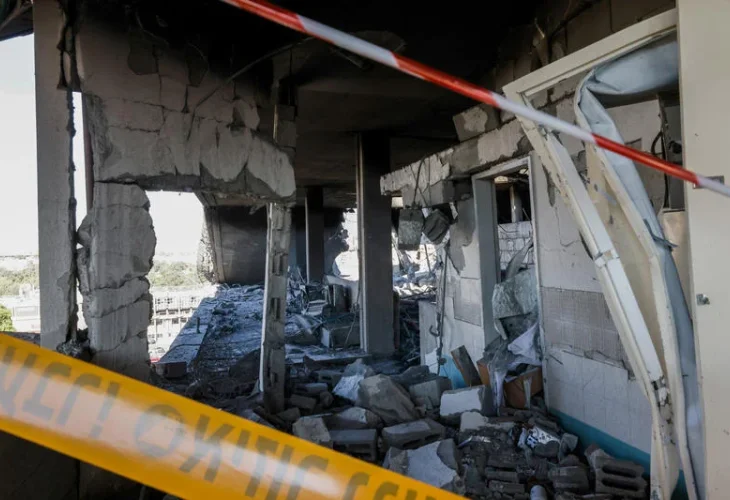Israel News
Government, Donors Pledge Over NIS 1 Billion to Rebuild Soroka Hospital After Iranian Strike
Israel announces massive investment and record donation to restore southern medical center destroyed during Operation Rising Lion
 Soroka Hospital after Iran Strike (Flash90)
Soroka Hospital after Iran Strike (Flash90)
The Finance and Health ministries on Sunday announced a joint five-year plan to invest NIS 360 million ($111 million) in rebuilding and protecting Soroka University Medical Center in Beersheba, which was badly damaged during the Iranian missile strike in Operation Rising Lion in June.
The decision marks one of Israel’s largest peacetime healthcare investments and comes alongside a private donation of $100 million (NIS 325 million) from businessman Sylvan Adams, the biggest contribution in the hospital’s history.
Soroka director Prof. Shlomi Codish said the combined effort would “change the face of the medical center for many years to come.” He thanked Adams for his “generous donation” and praised the government’s decision to allocate the resources needed for Soroka’s rehabilitation and protection.
The government plan will fund construction of a new fortified inpatient tower at the hospital, named the Rebirth Building. The facility will protect about 70 percent of Soroka’s beds, operating rooms, and critical units under national emergency standards. The total investment exceeds NIS 1 billion, shared equally between the state, Clalit Health Services, and Adams’s donation.
Addressing the cabinet meeting, Adams said, “Our answer to Iran is to build back bigger and better. On the very place where missiles fell, we will build in Beersheba a beacon of healing, progress, and peace. We choose life. We choose excellence. We choose to answer destruction with construction, and hatred with compassion.” He added that the project fulfills David Ben-Gurion’s vision of a flourishing Negev: “In labs and lecture halls, in hospital wards and emergency rooms, we are helping to make that dream a reality.”
Prime Minister Benjamin Netanyahu praised Adams’s contribution, calling him “a great friend and benefactor of the State of Israel.” He said Adams “raises Israel’s standing in so many fields and makes a truly significant contribution,” thanking him “on behalf of the government, the citizens of Israel, and especially the residents of the Negev.”
According to the hospital’s reconstruction plan, half of Adams’s donation will go toward rebuilding and modernizing infrastructure, and the remaining $50 million will fund future transformation, like expanding emergency capacity, modernizing maternal and intensive care, and integrating AI-based diagnostics and precision medicine.
Finance Minister Bezalel Smotrich said the government’s decision was “not just about repairing damage,” but also “a statement of our commitment to the Negev and to reducing the gap between the center and the periphery.”
Soroka, Israel’s only tertiary hospital in the South, serves more than one million residents including Bedouin communities and border towns. During the Gaza war, it treated thousands of wounded civilians and soldiers. Since the Iranian missile strike, the hospital has faced severe shortages. More than 300 beds remain unusable, eight operating rooms were destroyed, and joint research labs with Ben-Gurion University were demolished.
“I have to apologize to women at their most difficult moments and explain why they see men with catheters in the hallway,” said Prof. Asher Bashiri, head of Maternity Ward C, during a recent Knesset hearing. Dr. Yarden Zohar, a urology resident, described “impossible conditions” in the temporary wards, saying, “The rooms are cramped, without windows or ventilation. This costs lives and affects the quality of care.”
Adams, who also serves as president of the World Jewish Congress Israel region, previously donated $100 million to Ben-Gurion University after the October 7 attacks. “I am making this contribution as a proud Jew and as an Israeli who loves his country with all his heart and soul,” he said. “Soroka’s sacred mission is to save lives and care for people. Its staff continued to work professionally and compassionately under missile fire. They represent the best of Israel.”

